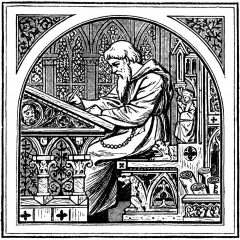The term “Reconciled Diversity” was taken from a biography of Pope Francis by Catholic commentator Austen Ivereigh, in which the-then Cardinal Bergoglio at an ecumenical gathering in Buenos Aires in 2006, described it as:
The beauty of a people in which no one had to give up being who they were, yet who could walk together in a common path.[1]
Tomorrow (18th) sees the start of a week of prayer for Christian Unity which for the past two years has been disrupted because of Covid. Thankfully this year, many of us will get together to pray and where safe to do so, share fellowship over lunch or coffee & biscuits or other delicacies. Much has happened within our individual churches and worship practices since March 2020, and there is now definitely a yearning among many church folk – along with I suspect most of the general public – that we have to learn to live with Covid and its various strains, in the same way we have learnt to live with the common cold and influenza.
In this year where organised gatherings are still being determined by the decisions of individual church councils, councils of elders and parish councils it will still however be something worthwhile as we continue in that quest for a Reconciled Diversity not only among Christian peoples, but also between Christians and those of other faiths where applicable.
As with all ecumenical activity, we each seek a greater understanding and respect for our different traditions and doctrines which have developed since the Protestant Reformation some 500 years ago, meeting regularly for prayer and discussion on how we approach these and other common issues. Not perfect by any means, most human interaction never really is, but better than what we had before.
One major change in past year has seen the UK Methodist Church follow the example of the United Reformed Church (URC), the Quakers and Scottish Episcopal Church in allowing same-sex marriages in their buildings. There is the possibility that the Church of Scotland may also follow suit leaving the Roman Catholic, Anglican Church and the Irish Methodist Church still opposed. Naturally there are some within those accepting churches who remain opposed, and clergy are being given freedom of conscience to opt out if desired. No-one is being forced to participate in something that makes them uncomfortable. The Roman Catholic Church’s continuing opposition to women clergy and also married clergy, are still a major source of disagreement between us and will require further discernment and prayer going forward. It is possible some congregation members may still leave – or have already left – their churches over these and other issues and we can only hope and pray for a reconciliation of all views in the future.
In Matthew 18:15-20[2], we find a gospel passage which is primarily a framework for dealing with disputes and disagreements. Jesus is urging us through his disciples, to seek a way forward, to seek agreement and if none can be found, to move on and to focus on what you can resolve. As it says in verse 19, if you can agree about anything on earth which you ask for, it will be done according to God’s will. Our Heavenly Father will provide.
And then in that final verse, one of the most beautifully expressed of Jesus sayings,
“For where two or three are gathered in my name, I am there among them.”
This week as we gather in each other’s places of worship to pray for Christian unity he will be among us, guiding us on where we agree but ensuring we keep any disagreements respectful. This is the beauty of reconciled diversity and with it the essence of Christian unity. Where despite differences in teaching and use of liturgies, we strive for that common path seeking to strengthen unity rather than focus on areas of division.
The history of Christian faith and practice has never had periods of complete unity as with all human endeavours. We have in the past and still have today, a tendency to forget its original purpose, and then when human failures manifest themselves into greed or a lust for power and wealth develop, it takes a brave individual to successfully stand alone against the prevailing culture. Jesus tried it against the elite of his day and he was crucified for it. Many others since then have been martyred for their religious, political and cultural beliefs often, sadly, by other Christians.
Thankfully over recent decades the spirit of ecumenism and developing greater bonds of understanding has gone from strength to strength. In my own area of the Black Country, we have a thriving Churches together movement where we often preach in each other’s churches, not just over the next week but at other times of the year, and I hope this trend continues.
This is what Pope Francis meant by reconciled diversity. Where we each of us keep our own traditions and identities but come together working for a common cause, a journey along a common path. To serve others as Jesus himself came to serve, and commanded us to do, by loving our neighbours as ourselves.
Like all strong relationships, ours too needs working at to keep it fresh and alive. Where we support and nurture each other so that whatever our differences, we can find that common path we can walk together. Never was it more important for our prayers and petitions to be heard, not only for the coming week but the months and possibly years ahead.
Covid may have restricted us in many ways since it struck; but it has not managed to totally prevent us from joining together in regular prayer with our brothers and sisters in Christ.
Never was this more important than now.
[1] A. Ivereigh, The Great Reformer: Francis and the making of a Radical Pope (New York, Picador, 2014) p.293
[2] NRSV
